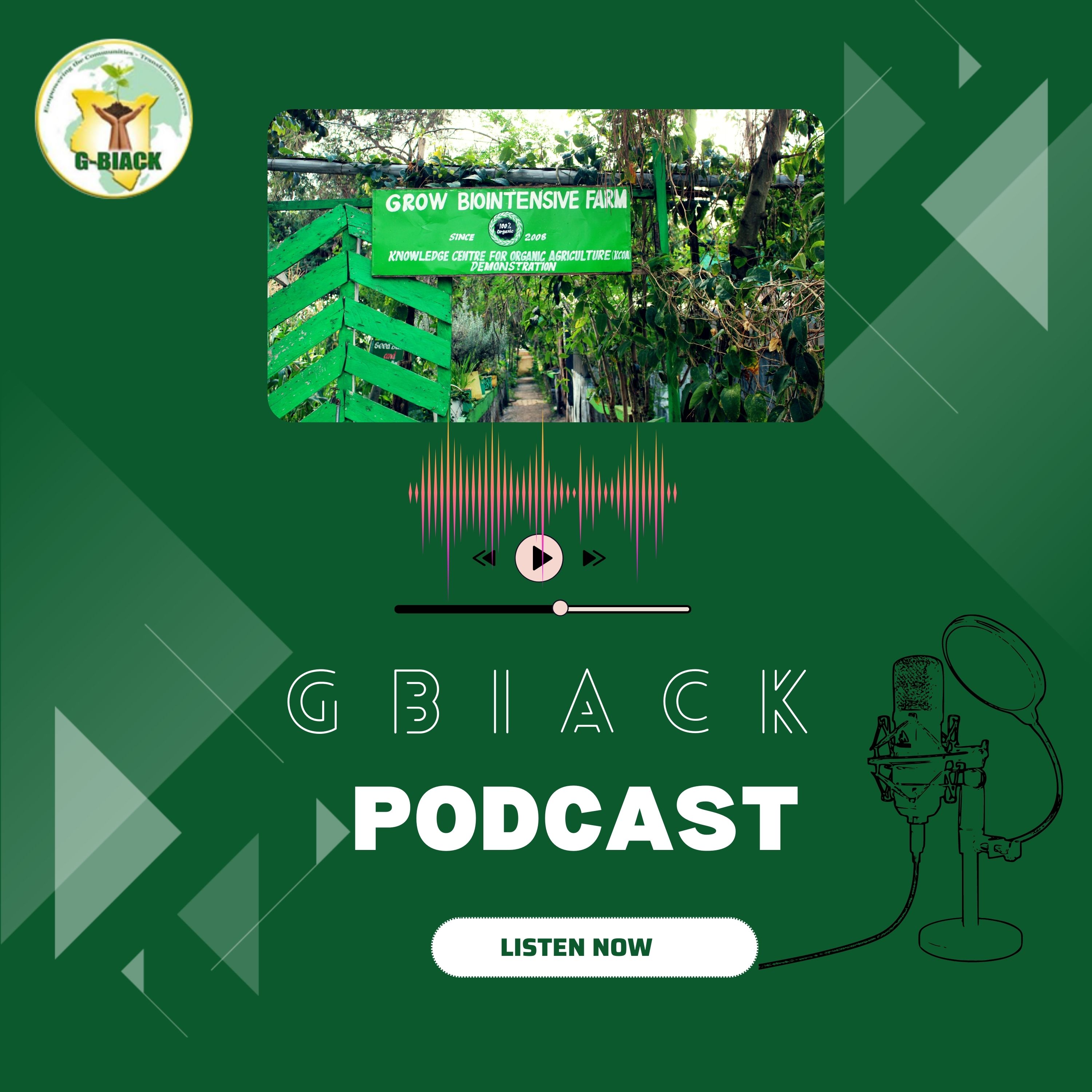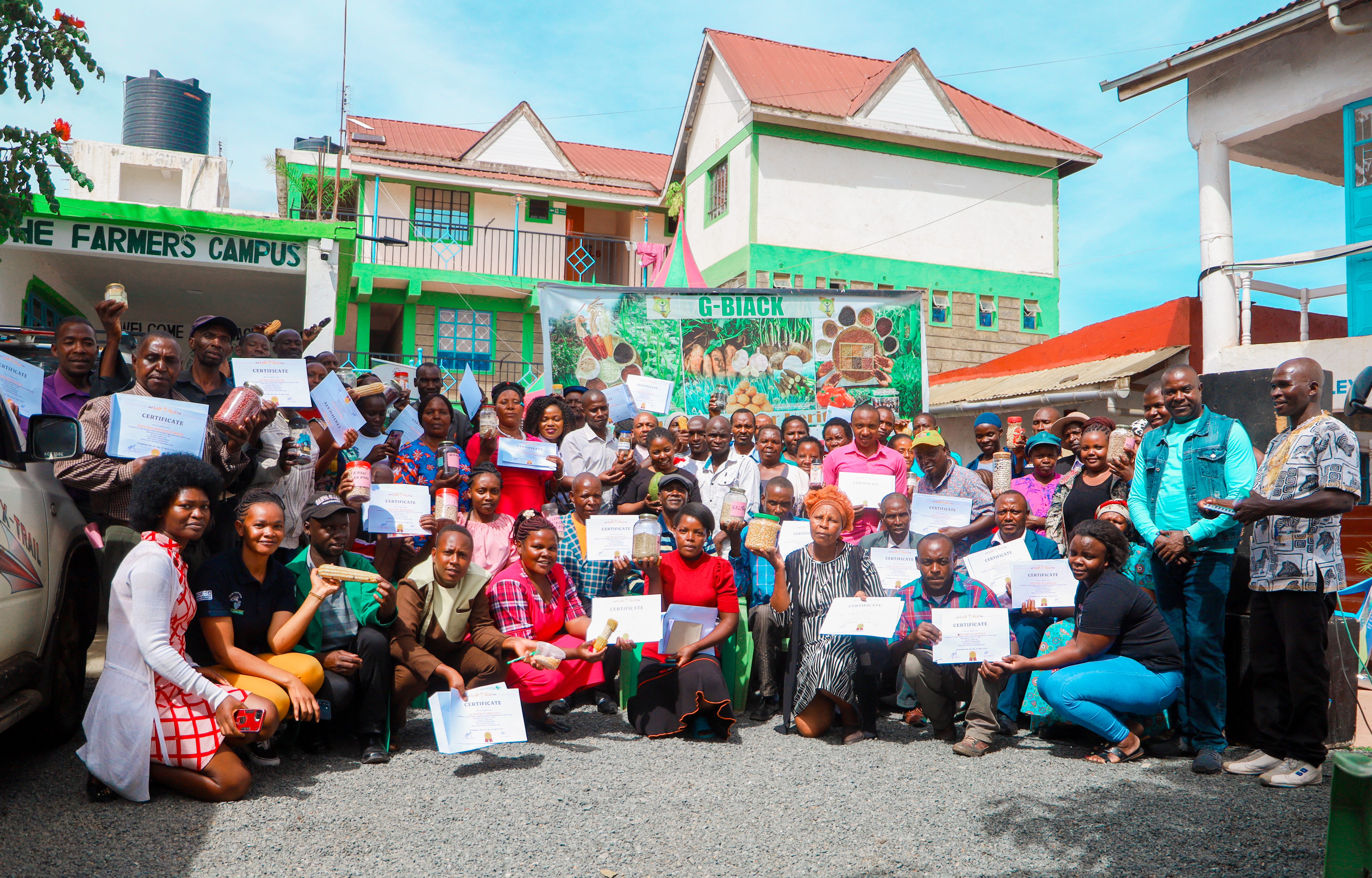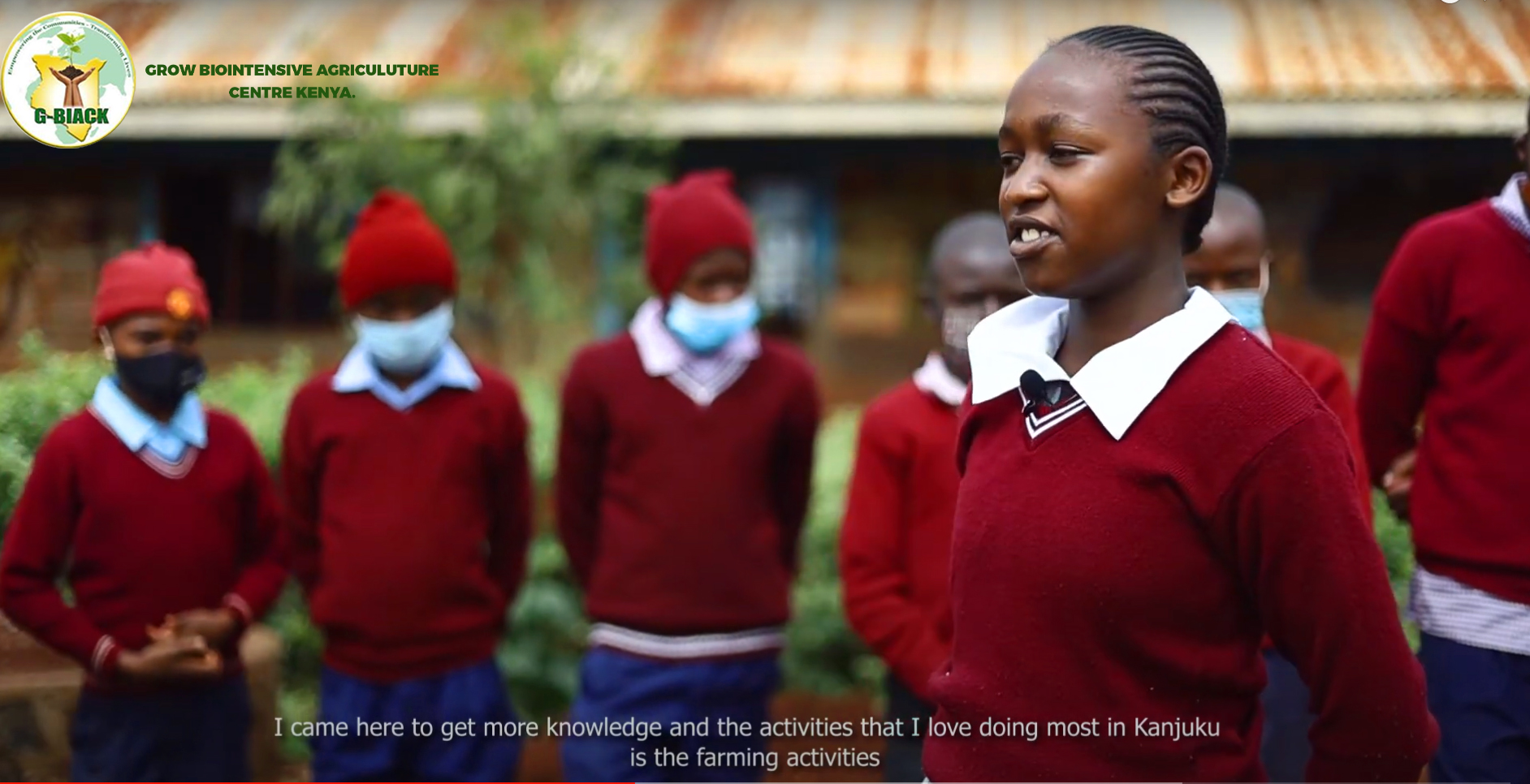About G-BIACK
Welcome to the Farmers Campus
Primary Programme
Training farmers and agriculturists on GROW BIOINTENSIVE agriculture
G-BIACK, the Grow Biointensive Agriculture Center of Kenya, demonstrates, trains and promotes GROW BIOINTENSIVE AGRICULTURE methods and other appropriate community development techniques for sustainability among small-scale farm holders in Central, Eastern, and Nairobi Provinces in Kenya. G-BIACK initiatives aim at eradicating poverty and improving the living standards of resource poor communities by promoting ecologically viable development strategies for sustainable and quality livelihoods.
Our Vision
Communities in which there is a healthy environment and healthy people who are gainfully employed and lead fulfilled lives.
Our Mission
To seed a sense of empowerment and self reliance in communities that leads to improved food security (sovereignty) and livelihoods and a healthier (improving) environment.
What are the benefits of using GROW BIOINTENSIVE?
- 67% to 88% less water.
- 50% to100% less purchased fertilizer.
- 99% less energy than conventional agriculture, and a fraction of the resources.
- Using GROW BIOINTENSIVE doesn't contribute to agricultural pollution. In fact, it helps to sequester carbon in the soil which reduces greenhouse gases
- Double dug raised beds - to create a healthy environment for roots and beneficial soil organisms
- Fertilizing compost made from on-farm biomass - to provide healthy, cost-free fertilizer
- Intensive planting - to maximize efficiency and productivity, and to conserve water
- Companion planting - to take advantage of the beneficial synergy between certain plants
- Carbon farming - growing fertilizer while growing food
- Calorie farming - growing the greatest number of calories per pound of food
- The use of open-pollinated seeds - to encourage farmer security and regional food security
- A whole system farming method - using all aspects of the GROW BIOINTENSIVE system in synergy to create a healthy and productive sustainable farm
- Produce 2 to 6 times more food.
- Build the soil up to 60 times faster than in nature, if properly used.
- Reduce by half or more the amount of land needed
What are the methods used?
These techniques can also:
To inquire about scheduling a training at G-BIACK, contact us by email or phone:growbiointensivecenterkenya@gmail.com, 0720323134
The length of training
is flexible and depends on the needs of the applicant. In general, our training programmes are as follows:- 3 days basic training for farmers
- 6 days basic training for farmers
- 2 weeks basic training for Farmer Resource Persons
- 1 Month basic training for Trainers of Trainers (TOTs) Over 2 month training for professional TOTs
Costs: Daily charges can vary depending on length of stay at G-BIACK.
This is the cost of 3 days basic training for farmers:
- Facilitation ksh 1000
- Accommodation - B/B ksh 2200
- lunch - ksh 800
- 4pm tea/snack - ksh 500
What is Grow biontensive?
GROW BIOINTENSIVE is a scientific, agroecological, regenerative, sustainable and organic method researched and developed over 50 years by John Jeavons and Ecology Action in California, USA. Results of this research show that consistent and proper practice of the method will regenerate even the poorest soil without the use of chemicals, and yields will increase.
Welcome to Our Podcast
 Subscribe to our podcast
Subscribe to our podcast
Our Online Brochure Downloads
Why GROW BIOINTENSIVE?
GROW BIOINTENSIVE AGRICULTURE (GBIA) PRACTICES
GBecause GROW BIOINTENSIVE is a scientifically proven method that produces increased yields, sustainably
The Environment
GBIA practices are environmentally friendly, health and nutrition-promoting, and economically productive. GBIA farming has social benefits too. A community with families that can feed themselves well, send their children to school, and generate some income is more able to maintain peaceful relations and tackle issues they share at the community level. GBIA practices are applicable in both dry and wet areas. They are very suitable in areas where land is scarce and plots are small, as only a small piece of land is needed to produce adequate food. Household wastes (wood ash, egg shells, food leftovers and other materials that can decompose easily) are recycled to return valuable nutrients back into the farming system. The foods produced are chemical-free and healthy.
Courses Offered at G-BIACK
Empowering Communities ~ Transforming Lives
Agroecological agriculture majouring in GROW BIONINTENSIVE Agriculture
| # | Level | Duration | Tution Fee |
|---|---|---|---|
| 1 | Certificate | 3 Months | KSH 18,000 |
| 2 | Basics | 3 Weeks | KSH 5,000 |
Textiles(tailoring, dressmaking, bead working)
| # | Level | Duration | Tution Fee |
|---|---|---|---|
| 1 | Basics | 3 Months | KSH 15,000 |
| 2 | Advanced | 3 Months | KSH 18,000 |
Information technology and Computer Studies (C.S.K certification)
| # | Level | Duration | Tution Fee |
|---|---|---|---|
| 1 | Basics | 3 Months | KSH 7,500 |
Cooking and Baking Technology
1. Cooking
| # | Level | Duration | Tution Fee |
|---|---|---|---|
| 1 | Basics | 4 Days | KSH 10,000 |
2. Baking
| # | Level | Duration | Tution Fee |
|---|---|---|---|
| 1 | Basics | 3 Days | KSH 9,000 |










